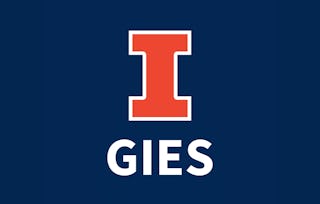Dieser Kurs, Maschinelles Lernen für das Rechnungswesen mit Python, führt in Algorithmen des maschinellen Lernens (Modelle) und ihre Anwendungen bei Problemen im Rechnungswesen ein. Er behandelt Klassifizierung, Regression, Clustering, Textanalyse und Zeitreihenanalyse. Außerdem werden die Modellevaluation und die Modelloptimierung behandelt. Dieser Kurs bietet einen Einstieg für Studenten, die in der Lage sind, geeignete Modelle des maschinellen Lernens auf unternehmensbezogene Datensätze mit Python anzuwenden, um verschiedene Probleme zu lösen. Accounting Data Analytics mit Python ist eine Voraussetzung für diesen Kurs. Dieser Kurs läuft auf der gleichen Plattform (Jupyter Notebook) wie der vorausgesetzte Kurs. Während Accounting Data Analytics with Python das Datenverständnis und die Datenaufbereitung im Datenanalyseprozess abdeckt, behandelt dieser Kurs die nächsten beiden Schritte des Prozesses, die Modellierung und die Modellbewertung. Nach Abschluss der beiden Kurse sollten die Teilnehmer in der Lage sein, einen kompletten Datenanalyseprozess mit Python durchzuführen.

Maschinelles Lernen für die Buchhaltung mit Python

Maschinelles Lernen für die Buchhaltung mit Python
Dieser Kurs ist Teil von Spezialisierung für Datenanalyse für die Buchhaltung

Dozent: Linden Lu
10.128 bereits angemeldet
Bei enthalten
45 reviews
Was Sie lernen werden
Das Konzept der verschiedenen Algorithmen des maschinellen Lernens.
Wie Sie Modelle für maschinelles Lernen mit Python in Jupyter Notebook auf Datensätze anwenden.
Wie man Modelle für maschinelles Lernen bewertet.
Wie man Modelle für maschinelles Lernen optimiert.
Kompetenzen, die Sie erwerben
- Kategorie: Scikit Learn (Bibliothek für Maschinelles Lernen)
- Kategorie: Pandas (Python-Paket)
- Kategorie: Python-Programmierung
- Kategorie: Überwachtes Lernen
- Kategorie: Angewandtes maschinelles Lernen
- Kategorie: Vorverarbeitung der Daten
- Kategorie: Statistische Analyse
- Kategorie: Prädiktive Modellierung
- Kategorie: Maschinelles Lernen
- Kategorie: Algorithmen für maschinelles Lernen
- Kategorie: Unüberwachtes Lernen
- Kategorie: Klassifizierungsalgorithmen
- Kategorie: Modell Bewertung
- Kategorie: Zeitreihenanalyse und Vorhersage
- Kategorie: Regressionsanalyse
- Kategorie: Feature Technik
- Kategorie: Text Mining
- Kategorie: Jupyter
Wichtige Details

Zu Ihrem LinkedIn-Profil hinzufügen
8 Aufgaben
Erfahren Sie, wie Mitarbeiter führender Unternehmen gefragte Kompetenzen erwerben.

Erweitern Sie Ihre Fachkenntnisse
- Lernen Sie neue Konzepte von Branchenexperten
- Gewinnen Sie ein Grundverständnis bestimmter Themen oder Tools
- Erwerben Sie berufsrelevante Kompetenzen durch praktische Projekte
- Erwerben Sie ein Berufszertifikat zur Vorlage

In diesem Kurs gibt es 8 Module
In diesem Modul machen Sie sich mit dem Kurs, Ihrem Dozenten und Ihren Mitschülern sowie mit unserer Lernumgebung vertraut. Diese Orientierung wird Ihnen auch helfen, die technischen Fähigkeiten zu erwerben, die Sie benötigen, um in diesem Kurs zu navigieren und erfolgreich zu sein. Dieses Modul bildet die Grundlage für den Rest des Kurses, indem es in die grundlegenden Konzepte des Maschinellen Lernens einführt, insbesondere in die Durchführung des Maschinellen Lernens mit Hilfe von Python und dem Scikit-learn Modul für Maschinelles Lernen. Zunächst werden Sie die Grundtypen des Maschinellen Lernens kennenlernen. Als Nächstes lernen Sie einen wichtigen Schritt vor der Anwendung von Algorithmen des Maschinellen Lernens kennen: die Vorverarbeitung von Daten. Schließlich lernen Sie, wie Sie verschiedene Arten von Algorithmen des Maschinellen Lernens in einem Python-Skript nutzen können.
Das ist alles enthalten
6 Videos5 Lektüren1 Aufgabe1 Programmieraufgabe3 Diskussionsthemen4 Unbewertete Labore1 Plug-in
In diesem Modul werden drei Algorithmen für maschinelles Lernen vorgestellt. Zunächst lernen Sie, wie die lineare Regression als ein Problem des maschinellen Lernens mit Parametern betrachtet werden kann, die rechnerisch durch Minimierung einer Kostenfunktion bestimmt werden müssen. Als nächstes werden Sie die logistische Regression kennenlernen. Trotz ihres Namens ist die logistische Regression ein Klassifizierungsalgorithmus. Schließlich lernen Sie den Entscheidungsbaum kennen, einen beliebten Algorithmus für maschinelles Lernen, der sowohl für die Klassifizierung als auch für die Regression verwendet werden kann. In diesem Modul wird das Konzept der maschinellen Klassifizierung vertieft, bei dem Algorithmen aus vorhandenen, markierten Daten lernen, um neue, ungesehene Daten in bestimmte Kategorien zu klassifizieren, sowie das Konzept der maschinellen Regression, bei dem Algorithmen aus Daten ein Modell lernen, um Vorhersagen für neue, ungesehene kontinuierliche Daten zu treffen. Diese Algorithmen unterscheiden sich zwar in ihren mathematischen Grundlagen, werden aber häufig zur Klassifizierung von Zahlen-, Text- und Bilddaten oder zur Durchführung von Regressionen in einer Vielzahl von Bereichen verwendet.
Das ist alles enthalten
4 Videos1 Lektüre1 Aufgabe1 Programmieraufgabe4 Unbewertete Labore
In diesem Modul werden drei weitere Algorithmen für maschinelles Lernen vorgestellt: k-nearest neighbors, support vector machine und random forest. Alle diese Algorithmen können entweder für Klassifizierungs- oder Regressionsaufgaben verwendet werden.
Das ist alles enthalten
4 Videos1 Lektüre1 Aufgabe1 Programmieraufgabe4 Unbewertete Labore
Die Modellbewertung ist ein wesentlicher Bestandteil jedes Datenanalyseprojekts. Sie hilft herauszufinden, wie gut das Modell bei der Vorhersage zukünftiger Daten (außerhalb der Stichprobe) funktionieren wird. In diesem Modul werden grundlegende Metriken zur Modellbewertung für Algorithmen des maschinellen Lernens vorgestellt. Zunächst werden die Bewertungsmetriken für die Regression vorgestellt. Anschließend werden die Metriken und Techniken zur Bewertung der Klassifizierung vorgestellt.
Das ist alles enthalten
4 Videos1 Lektüre1 Aufgabe1 Programmieraufgabe4 Unbewertete Labore
Dieses Modul führt Sie in die Techniken der Modelloptimierung ein. Zunächst werden die grundlegenden Techniken der Merkmalsauswahl vorgestellt. Als nächstes wird die Technik der Kreuzvalidierung vorgestellt, die eine genauere Bewertung der Modelle ermöglicht. Schließlich wird die Modellauswahl bzw. die Abstimmung der Hyperparameter vorgestellt, die die Kreuzvalidierung nutzt.
Das ist alles enthalten
4 Videos1 Lektüre1 Aufgabe1 Programmieraufgabe4 Unbewertete Labore
In diesem Modul beginnen Sie, Ihre neuen Kenntnisse des maschinellen Lernens auf ein spannendes Thema der Datenanalyse anzuwenden: Textanalyse. Zunächst werden wir uns den Prozess ansehen, durch den Textdaten in numerische Daten umgewandelt werden, die von einem Computer verarbeitet werden können. Damit einher geht eine Reihe neuer Konzepte, die sich auf die Manipulation dieser Daten konzentrieren, um bessere Vorhersagen durch maschinelles Lernen zu erstellen. Zweitens werden wir Algorithmen des maschinellen Lernens, insbesondere die Klassifizierung, auf Textdaten anwenden. Schließlich werden wir uns mit den fortgeschritteneren Konzepten der Textanalyse befassen und eine spezielle Art der Textklassifizierung vorstellen: die Sentimentanalyse.
Das ist alles enthalten
4 Videos1 Lektüre1 Aufgabe1 Programmieraufgabe4 Unbewertete Labore
In diesem Modul wird das Clustering vorgestellt, bei dem Datenpunkte auf der Grundlage bestimmter Eigenschaften, wie dem räumlichen Abstand oder der lokalen Dichte von Punkten, Untergruppen von Punkten zugeordnet werden. Während Menschen Cluster in einem gegebenen Datensatz oft mit Leichtigkeit visuell finden, ist das Problem rechnerisch eine größere Herausforderung. Dieses Modul beginnt mit der Erforschung der grundlegenden Ideen hinter dieser unüberwachten Lerntechnik. Eine der populärsten Clustering-Techniken, K-means, wird vorgestellt. Anschließend wird eine Fallstudie zu K-means vorgestellt. Schließlich wird die dichtebasierte DBSCAN-Technik vorgestellt.
Das ist alles enthalten
4 Videos1 Lektüre1 Aufgabe1 Programmieraufgabe4 Unbewertete Labore
In diesem Modul werden Zeit- und Datumsdaten vorgestellt, die einzigartige Lernmöglichkeiten und Herausforderungen bieten. Zunächst werden wir besprechen, wie man Zeit- und Datumsmerkmale in einem Python-Programm richtig handhabt. Anschließend werden wir diese Diskussion auf den Umgang mit Daten erweitern, die durch Zeit- und Datumsinformationen indiziert sind, was als Zeitseriendaten bezeichnet wird.
Das ist alles enthalten
4 Videos3 Lektüren1 Aufgabe1 Programmieraufgabe3 Unbewertete Labore1 Plug-in
Erwerben Sie ein Karrierezertifikat.
Fügen Sie dieses Zeugnis Ihrem LinkedIn-Profil, Lebenslauf oder CV hinzu. Teilen Sie sie in Social Media und in Ihrer Leistungsbeurteilung.
Auf einen Abschluss hinarbeiten
Dieses Kurs ist Teil des/der folgenden Studiengangs/Studiengänge, die von University of Illinois Urbana-Champaignangeboten werden. Wenn Sie zugelassen werden und sich immatrikulieren, können Ihre abgeschlossenen Kurse auf Ihren Studienabschluss angerechnet werden und Ihre Fortschritte können mit Ihnen übertragen werden.¹
Dozent

Mehr von Geschäftsstrategie entdecken
 Status: Kostenloser Testzeitraum
Status: Kostenloser TestzeitraumUniversity of Illinois Urbana-Champaign
 Status: Kostenloser Testzeitraum
Status: Kostenloser TestzeitraumEDHEC Business School
 Status: Kostenloser Testzeitraum
Status: Kostenloser TestzeitraumEDHEC Business School
 Status: Kostenloser Testzeitraum
Status: Kostenloser TestzeitraumCorporate Finance Institute
Warum entscheiden sich Menschen für Coursera für ihre Karriere?

Felipe M.

Jennifer J.

Larry W.

Chaitanya A.
Bewertungen von Lernenden
- 5 stars
71,11 %
- 4 stars
22,22 %
- 3 stars
4,44 %
- 2 stars
0 %
- 1 star
2,22 %
Zeigt 3 von 45 an
Geprüft am 31. Jan. 2022
this great course , i'm accountant and i recomand for accountant to take all the course in order
Geprüft am 26. Aug. 2022
The course is a great one for Machine Learning Journey
Geprüft am 16. Apr. 2022
This is a great introductory course on machine learning with really practical examples. It does not go too deep.

Neue Karrieremöglichkeiten mit Coursera Plus
Unbegrenzter Zugang zu 10,000+ Weltklasse-Kursen, praktischen Projekten und berufsqualifizierenden Zertifikatsprogrammen - alles in Ihrem Abonnement enthalten
Bringen Sie Ihre Karriere mit einem Online-Abschluss voran.
Erwerben Sie einen Abschluss von erstklassigen Universitäten – 100 % online
Schließen Sie sich mehr als 3.400 Unternehmen in aller Welt an, die sich für Coursera for Business entschieden haben.
Schulen Sie Ihre Mitarbeiter*innen, um sich in der digitalen Wirtschaft zu behaupten.
Häufig gestellte Fragen
Sobald Sie sich für ein Zertifikat angemeldet haben, haben Sie Zugang zu allen Videos, Tests und Programmieraufgaben (falls zutreffend). Wenn Sie sich entscheiden, den Kurs ohne Kauf zu erkunden, haben Sie möglicherweise keinen Zugang zu bestimmten Aufgaben.
Sie haben Anspruch auf eine vollständige Rückerstattung bis zu 2 Wochen nach Ihrem Zahlungsdatum. Sie können keine Rückerstattung erhalten, sobald Sie ein Kurszertifikat erworben haben, selbst wenn Sie den Kurs innerhalb der 2-wöchigen Rückerstattungsfrist abschließen.
Ja! Coursera bietet finanzielle Unterstützung für Lernende, die einen Kurs absolvieren möchten, sich die Kursgebühr aber nicht leisten können. Um eine finanzielle Unterstützung zu beantragen, wählen Sie "Mehr erfahren und beantragen" im Bereich Finanzielle Unterstützung unterhalb der Schaltfläche "Anmelden". Sie werden aufgefordert, einen einfachen Antrag auszufüllen; weitere Unterlagen sind nicht erforderlich.
Weitere Fragen
Finanzielle Unterstützung verfügbar,

